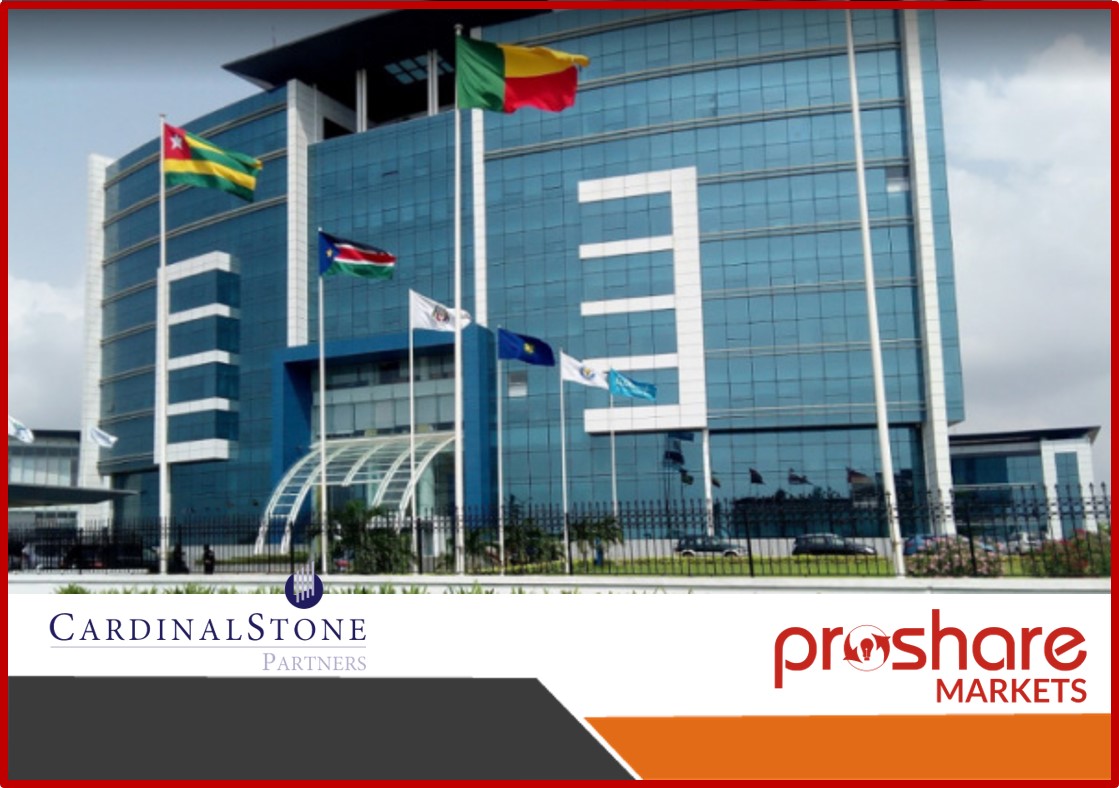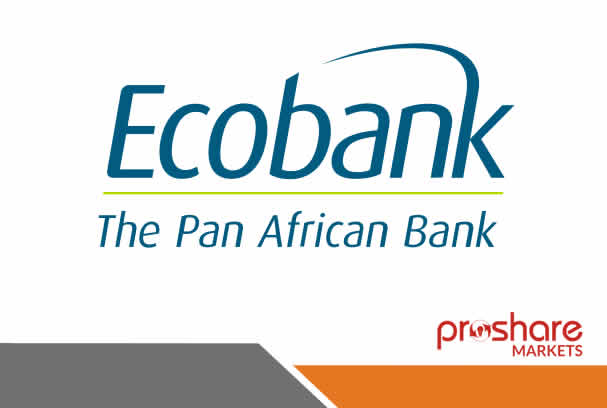Ecobank Transnational Incorporated (ETI) delivered double-digit growth in revenue and after-tax incomes in 9M 2022. The top and bottom-line earnings grew by +10.08% and +17.4%, driven by growth in digital income, investment earnings, and net interest income. The group’s regional performance took a different turn from contemporary trends with Nigeria contributing the most to its profit. While Central and East Africa led in revenue and Anglophone and Francophone followed closely. Analysts noticed the group’s cost-optimization trimmed its cost-to-income ratio to 56.4%.
During a recent investor’s conference, the management noted that the group sold off US$200m of its Nigerian stage 3 loans to a Resolution Vehicle which accounted for the improvement in the group’s NPL since Nigeria had the highest amount. Ecobank Nigeria recently received US$200 million in promissory notes with a maturity of 5 years and the repayment would commence in year three, indicating no extra expenses for the bank in 2023 and 2024.
Key Highlights
- Interest income rose by +9.1% from N445.12bn in 9M 2021 to N485.84bn in 9M 2022 while interest expense had a lesser growth rate of +8.4%.
- Profit after tax grew by +12.3% while PBT increased by +17.4% from N686.77bn in 9M 2021 to N761.23bn in 9M 2022.
- Loan and advances to customers declined by -0.8% from N4.06trn in 9M 2021 and 9M 2022 supporting the -5.9% decline in the impairment charge to N56.05 from N59.57bn in 9M 2021.
- ETI’s customer deposit grew by +3.54% to N8.06trn in 9M 2022 from N7.79trn in 9M 2021
- Retained earnings declined by -40.72% to N155.96bn in 9M 2022 from N263.09bn in 9M 2021
- Depreciation and Amortization declined slightly to N32.17bn in 9M 2022 from N33.25bn in 9M 2021
- Shareholder’s fund dropped by -13.59% from N876.33bn in 9M 2021 to N757.22bn in 9M 2022
- Total assets improved to N11.2trn in 9M 2022 from N10.91trn in 9M 2022
Share Price Movement
Investors rally at the bank’s stock in Q1 2022, bringing the share price to N12.00k in March 2022 from N8.90k in January, a reflection of the group’s corporate performance during the period. In other quarters, the share price fluctuated mildly, staying within the support price of N9.90k and a resistant price of N12.90k. The bank’s market price settled at N11.05k on September 30, 2022, with a positive Year-to-Date (YTD) return of +24.2% (see chart 1 below).
Chart 1:
Gross Earnings
The Pan-African bank’s top line earnings rose by +10.8% to N761.23bn in 9M 2022, propelled by the increase in loan advances, investment securities, and foreign exchange incomes. The group tweaked its operating activities to generate a +9.2% growth in interest income and other operating income by +43.9%. As seen in previous years, Nigeria contributed the least in terms of net interest income with N36.77bn while the Anglophone region (AWA) had the highest at N116.32bn, UEMOA came second with N103.92bn and CESA had N90.42bn. However, the percentage contribution to revenue had different dynamics, CESA led with 37%, followed by Nigeria at 21%, AWA with 20%, and UEMOA contributed the smallest at 14% (see chart 2 below).
Chart 2:
In US dollar, the gross earnings grew by a lower percentage of +7.2% from US$1.70m in 9M 2021 to US$1.82m in 9M 2022.
Profitability
The group’s profit after tax (PAT) rose by +12.3% to N117.40bn in 9M 2022 from N104.51bn in 9M 2021. The rise reflects the group’s cost containment measures and higher interest income across all regions which outpaced growth in operating expenses. The group’s e-banking segment contributed to the rise in earnings as the volume of digital transactions rose by +44% to US$59.1m. The group’s profit before tax (PBT) grew to N168.7bn from N143.7bn in 9M 2021.
Nigeria had the highest percentage contribution of 76% while UEMOA, CESA, and AWA contributed 35%, 29%, and 25% accordingly. Analysts observed the group made a significant profit from the sales of property and equipment which resulted in a +43.9% growth in other operating income. The PBT in US dollars had a lower growth rate of +14% (see chart 3 below).
Chart 3:
Impairment Charge
The group’s credit loss dropped to N56.05bn in 9M 2022 from N59.57bn in 9M 2021. Analysts observed that the group’s non-performing loans (NPLs) declined from N653bn in 9M 2021 to N630bn in 9M 2022, but recoveries declined by -13.5%. The lower impairment charge came from the lower provision on financial assets, which fell by -67% from N17.37bn in 9M 2021 to N5.72bn in 9M 2022 (see chart 4 below).
Chart 4:
Cost-to-Income (CIR)
In 9M 2022, ETI clampdown on its cost-to-income ratio cutting it to 56.30%. Over the past 4 years, the group’s CIR figures have declined steadily, from 66.40% in 2019 to 58.30% in 9M 2021. Operating expenses grew by a single digit of +6.7% from N300.7bn in 9M 2021 to N320.86bn in 9M 2022 as the higher revenue growth and cost containment measures reduced the CIR ratio.
A regional comparison for 9M 2022 showed that Nigeria generated the highest CIR of 77.9%, followed by UEMOA at 50.2% while AWA had the least at 44.1%, the figures indicate that Nigeria has larger operating costs and generates lower profits in comparison to other regions. Analysts note the need for tighter cost control in Nigeria to avoid challenges to overall group performance (see chart 5 below).
Chart 5:
Non-performing Loans (NPLs)
The group’s NPL fell to 6.4% in 9M 2022 from 6.9% in 9M 2021 as the non-performing loans declined to US$630 from US$639 in 9M 2021. The drop indicated the recovery of written-off loans in previous years. Analysts noticed Nigeria had the largest non-performing loans at US$222m while other regions saw below US$100m with the Anglophone region seeing NPLs of US$33m. The sale of US$200m worth of NPLs to an Asset Resolution Vehicle in Q3 caused the drop in Nigeria’s non-performing loans from US$428m in 9M 2021 to US$222m in9M 2022 (see chart below).
Chart 6:
Return on Equity (ROE)
Anglophone West Africa (AWA) and Central, Eastern, and Southern Africa (CESA) saw ROEs of 31% and 24.5% respectively. The strong ROEs improved the group’s return on equity to 21% in 9M 2022 from 17% in 9M 2021. Nigeria contributed the lowest to ROE at 4.6% while UEMOA saw a 23.6% contribution. The +12.3% increase in net earnings supported the improvement in ROE (see chart 7 below).
Chart 7:
ETI’s Regional Performance
The Nigeria business segment seems to have reworked its operating strategies in this period, generating the highest revenue and profit growth of +17.95% and +55.56% despite the challenging environment. The improvement spread to both cost-to-income and non-performing ratios, declining to 77.90% and 8.70 respectively. Notwithstanding the performance, the region still remains an excruciating pain in the group’s performance with its high operating cost, heavy loan-to-deposit ratio, and $222m non-performing loans.
Francophone West Africa (UEMOA) saw the least revenue growth of +1.22% but still generated a +20.28% growth in profit, benefiting from lower net impairment changes and better loan recoveries with the NPL staying unchanged at 2.8%. Central and Eastern Africa also scaled up revenue and profit by +13.04% and +12.14% but had the only rise in NPLs to 4.6%. Anglophone West Africa remained the most cost-efficient region with the least CIR of 44.1% and NPL of 2.3% while its revenue and profit grew by +4.95% and +10.33%. Analysts acknowledge that the growth in Nigeria and Central and East Africa aided the group’s performance in 2022, however, the sustainability of the performance is still dependent on Nigeria as key components of improved performance are still lagging, particularly CIR, NPL, gross earnings, and profit (see chart 8 below).
Chart 8:
End note
ETI appears to be on the mend, but a lot comes from the performance of Nigeria and a stronger growth rate of earnings in Francophone regions. The continental financial franchise has struggled a bit as differential performances in separate markets have hobbled growth, but the diversity of operations has helped to reduce country risk.
Cost containment across markets will be a crucial consideration in 2022 as global uncertainty raises the bar for the riskiness of loan asset creation. Analysts will do a deep dive into the continental lending giant’s financial position as it prepares for its year-end result.
 Lagos, NG • GMT +1
Lagos, NG • GMT +1











 657 views
657 views























 Sponsored Ad
Sponsored Ad
 Advertise with Us
Advertise with Us









